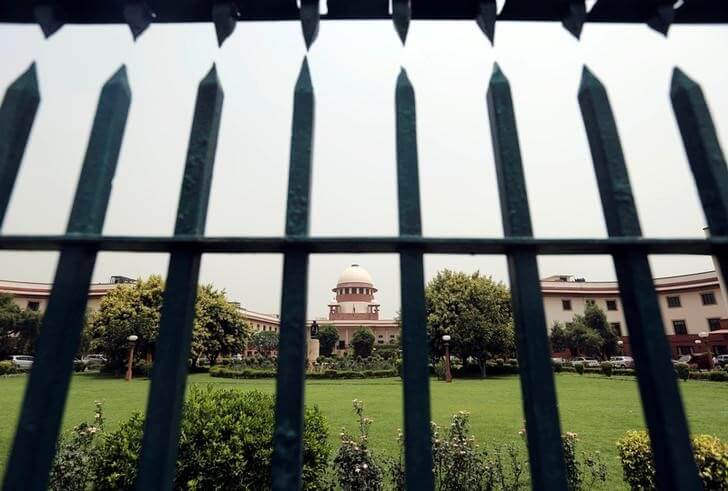By Suchitra Mohanty
NEW DELHI (Thomson Reuters Foundation) – India’s Supreme Court said it will examine how far it could interfere in Muslim laws governing family-related issues as it heard a plea to end a practice allowing Muslim men to divorce their wives by saying “talaq” three times. The Indian constitution allows Muslims, the biggest religious minority group, to regulate matters such as marriage, divorce and inheritance through their own civil code.
A Supreme Court bench said Muslim personal law affected a large number of people and asked the federal government to weigh in on the debate as to whether intervening in the law would violate the Muslim community’s fundamental rights. “It is a serious issue and it has to be examined within the framework of the Constitution,” Chief Justice of India, Tirath Singh Thakur, said of the petition on Wednesday.
“We have to hear all of the views and take a call as to what extent courts can interfere in Muslim personal laws,” he said.
The next hearing is on Sept. 6.
Muslims make up 13 percent of the country’s 1.2 billion population, yet government data show they are among some of the most excluded and marginalized communities.
Women’s rights activists have long called for reform of the Muslim personal law which they say discriminates against women. What they want instead is a well-defined law that criminalizes polygamy, unilateral divorce and child marriage. Campaigners say the “triple talaq” practice – which allows Muslim men an instant divorce with Muslim women being divorced via Facebook, Skype and text message – is unconstitutional because it violates the right to equality. AWARE OF RIGHTS
The petition being considered by the Supreme Court also seeks an end to polygamy and ‘halala’, which mandates that if a woman wants to go back to her husband after a divorce, she must first consummate her marriage with another man. “Triple talaq is not valid as per the Koran, which stresses mediation and reconciliation before the decision to divorce,” said Zakia Soman, co-founder of Bharatiya Muslim Mahila Andolan (BMMA), which campaigns for Muslim women’s rights and is a co-petitioner in the case. “The Supreme Court needs to be guided by the Constitutional mandate,” she told the Thomson Reuters Foundation.
More than 90 percent of Muslim women surveyed by BMMA last year said they wanted an end to polygamy and triple talaq.
There are drives to end other practices as well. Some women in the Dawoodi Bohra community, the only South Asian Muslim community known to practise female genital mutilation, are calling for an end to the centuries-old custom. In a 1985 landmark judgment, the Supreme Court granted divorcee, Shah Bano, alimony for life. But following protests from Muslim leaders and others that the court was being intrusive, the judgment was overturned. “Thirty years after Shah Bano, Muslim women are more aware of their Koranic rights and more willing to fight for them,” Soman said.
“We think the Court will strike the right balance between gender justice and the right to religious freedom,” she said.
(Writing by Rina Chandran, Editing by Katie Nguyen. Please credit the Thomson Reuters Foundation, the charitable arm of Thomson Reuters, that covers humanitarian news, women’s rights, trafficking, corruption and climate change. Visit news.trust.org to see more stories.)
India’s top court to consider intervening in Muslim ‘triple talaq’ divorce law

By Suchitra Mohanty


















